-
 +25 +1
+25 +1If Everyone Ate Beans Instead of Beef
Ecoanxiety is an emerging condition. Named in 2011, the American Psychological Association recently described it as the dread and helplessness that come with “watching the slow and seemingly irrevocable impacts of climate change unfold, and worrying about the future for oneself, children, and later generations.” It’s not a formal diagnosis. Anxiety is traditionally defined by an outsized stress response to a given stimulus. In this case, the stimulus is real, as are the deleterious effects of stress on the body.
-
 +10 +1
+10 +1US government report warns climate change is real
The US government released Friday a major scientific report that says climate change is real, "extremely likely" to be caused by human activity, and affecting the daily lives of Americans. The findings of the federally mandated report are starkly at odds with the position of US President Donald Trump, who has labeled global warming a Chinese hoax and named fossil fuel ally Scott Pruitt to head the Environmental Protection Agency.
-
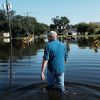 +30 +1
+30 +1Massive Government Report Says Climate Is Warming And Humans Are The Cause
The U.S. government's most comprehensive climate report to date is at odds with the statements made by President Trump and his Cabinet.
-
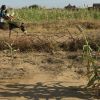 +29 +1
+29 +1Climate change 'will create world's biggest refugee crisis'
Tens of millions of people will be forced from their homes by climate change in the next decade, creating the biggest refugee crisis the world has ever seen, according to a new report. Senior US military and security experts have told the Environmental Justice Foundation (EJF) study that the number of climate refugees will dwarf those that have fled the Syrian conflict, bringing huge challenges to Europe.
-
 +1 +1
+1 +1Risky Business Project fears U.S. can't weather the storm of climate change
Reducing the risk posed by climate change is economically and technically achievable, according to the Risky Business Project. The project is led by American business leaders such as Henry Paulson, the former U.S. Treasury Secretary and Goldman Sachs CEO; Mike Bloomberg, the billionaire founder of the securities data-news firm; and Greg Page, the retired CEO of global agribusiness giant Cargill. Their findings, based on scientific and economic research, is that climate change poses tremendous risk to American agriculture...
-
 +25 +1
+25 +1US winter has shrunk by more than one month in 100 years
The length of the US winter is shortening, with the first frost of the year arriving more than one later than it did 100 years ago, according to more than a century of measurements from weather stations nationwide. The trend of ever later first freezes appears to have started around 1980, according to data from 700 weather stations across the US going back to 1895 and compiled by Ken Kunkel, a meteorologist at the National Oceanic and Atmospheric Administration’s National Centers for Environmental Information.
-
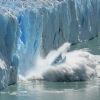 +22 +1
+22 +1Climate change is much, much worse than we thought, study finds
Global warming might be far worse than we thought, according to a new study. The research challenges the ways that researchers have worked out sea temperatures until now, meaning that they may be increasing quicker than previously suggested. The methodology widely used to understand sea temperatures in the scientific community may be based on a mistake, the new study suggests, and so our understanding of climate change might be fundamentally flawed.
-
 +18 +1
+18 +1Shipping executive: 'We have deliberately misled public on climate'
A UK shipping executive has turned on the industry for ignoring the effect lobbying has had on its efforts to reduce carbon pollution. In an op-ed published on the trade press site Splash 24/7 on Thursday, Andrew Craig-Bennett said industry mockery of a report released this week that concluded lobbyists had “captured” talks at the UN International Maritime Organisation (IMO) was misplaced.
-
 0 +1
0 +1Ocean acidification is deadly threat to marine life, finds eight-year study
Plastic pollution, overfishing, global warming and increased acidification from burning fossil fuels means oceans are increasingly hostile to marine life. If the outlook for marine life was already looking bleak – torrents of plastic that can suffocate and starve fish, overfishing, diverse forms of human pollution that create dead zones, the effects of global warming which is bleaching coral reefs and threatening coldwater species – another threat is quietly adding to the toxic soup.
-
 +21 +1
+21 +1Dimming the sun could save corals from bleaching and hurricanes
Time for artificial planet coolers? A cooling “sunshade” for the planet could reduce harmful coral bleaching and the number of hurricanes, which damage reefs. With the effects of climate change becoming increasingly apparent, the idea of squirting a cloud of sulphate aerosols into the upper atmosphere is being investigated by several groups of scientists. This would scatter some of the sun’s rays back into space, reducing the rate at which the Earth is warming.
-
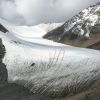 0 +1
0 +1'Impossible To Save': Scientists Are Watching China's Glaciers Disappear
At the end of every summer, scientist Li Zhongqin takes his seasonal hike near the top of a glacier in the Tianshan mountains in China's far northwestern region of Xinjiang. Li scrambles over a frozen ridge and heads toward a lone red pole wedged in the ice. Clouds emerge from a peak above and quickly blow past. He stops to catch his breath. He's at 14,000 ft. The snow is thick. The air is thin.
-
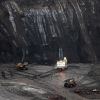 +11 +1
+11 +1'This is a really big deal': Canada natural gas emissions far worse than feared
Alberta’s oil and gas industry – Canada’s largest producer of fossil fuel resources – could be emitting 25 to 50% more methane than previously believed, new research has suggested. The pioneering peer reviewed study, published in Environmental Science & Technology on Tuesday, used airplane surveys to measure methane emissions from oil and gas infrastructure in two regions in Alberta.
-
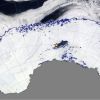 +13 +1
+13 +1Return of 'ocean chimney' the size of Tasmania puzzles Antarctic scientists
A mysterious and rare hole the size of Tasmania has opened up in the Antarctic sea ice.
-
 +37 +1
+37 +1Americans are willing to pay $177 a year to avoid climate change
And they want the money spent on clean energy.
-
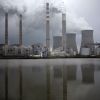 +25 +1
+25 +1Some Power Plants Pollute Worse Than Volcanoes
Climate change isn’t all that difficult to understand. A British scientist proved shortly before the U.S. Civil War that carbon dioxide absorbs heat, and a Swedish chemist doodled out the first equations involving fossil-fuel emissions before the 20th century even began. What was difficult to separate out, however, was identifying the human-driven signal within the noise of the vast, messy and natural climate system. We know that what we burn ends up in the atmosphere, driving up the Earth’s planetary fever. At least, at first it does. What happens to carbon dioxide after that?
-
 +17 +1
+17 +1Penguin disaster as just two chicks survive from colony of 40,000
A colony of about 40,000 Adélie penguins in Antarctica has suffered a “catastrophic breeding event” – all but two chicks have died of starvation this year. It is the second time in just four years that such devastation – not previously seen in more than 50 years of observation – has been wrought on the population. The finding has prompted urgent calls for the establishment of a marine protected area in East Antarctica, at next week’s meeting of 24 nations and the European Union at the Commission for the Conservation of Antarctic Marine Living Resources (CCAMLR) in Hobart.
-
 +9 +1
+9 +1Netherlands to end coal power by 2030, closing down new plants
The Netherlands will phase out coal power by 2030, set a carbon floor price and lobby for deeper EU carbon cuts in line with a 1.5C warming limit. That was revealed in the coalition agreement for Mark Rutte’s centre-right government on Tuesday, 209 days after the last general election. Under the agreement, three of the most efficient coal plants in Europe, completed in 2015, face early closure. As Climate Home reported, by 2016 they were already losing value, having failed to anticipate low demand, competition from renewables and campaigner pressure.
-
 +2 +1
+2 +1Canada to Tony Abbott: Inuit don't think climate change is 'probably good'
Canada’s environment minister hit out at former Australian prime minister Tony Abbott on Tuesday over his promotion of climate sceptic talking points. Catherine McKenna told a Chatham House conference she did not normally spend much time talking about climate science, preferring to focus on policy. “Unfortunately, some people in positions of power continue to propagate myths, including yesterday just here in London,” she said.
-
 +2 +1
+2 +1A Giant, Mysterious Hole Has Opened Up in Antarctica
“We’re still trying to figure out what’s going on.” By Kate Lunau.
-
 +12 +1
+12 +1Attempts To Silence Climate Scientists Have Been Desperate But Effective
People play dirty when they can’t win by playing fair. This is, more or less, the story of climate change denial in the United States. Scientists overwhelmingly agree that humans are altering the climate, reaping changes with potentially catastrophic consequences. Climate deniers can’t dispute the data. They can’t win on facts. Instead, they impugn the credibility of scientists, a tactic which has proved both ugly and effective.
Submit a link
Start a discussion




















